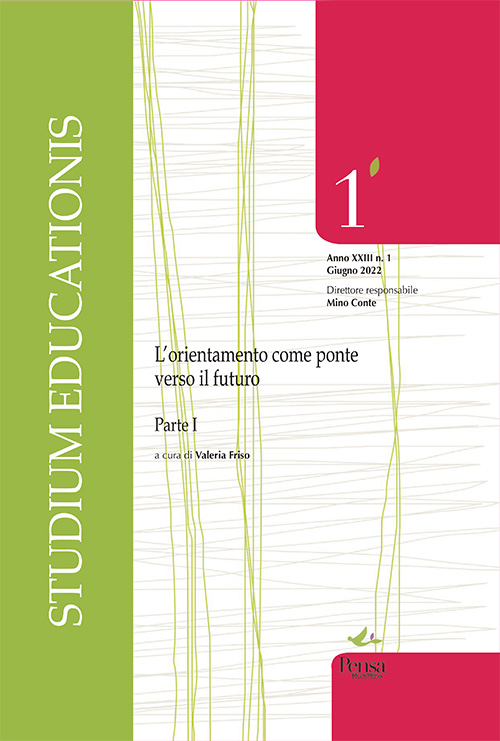Intellectual impairment and Life Project: two possible models usable at lower and upper secondary school
DOI:
https://doi.org/10.7346/SE-012022-06Abstract
Synchronic-final guidance is an ineffective model for the individual growth of pupils (Domenici, 1998; Chiappetta Cajola, 2015). At the same time, it is unable to reduce the experiences of school/university dropping out and that sense of loss characterized by anxiety and uncertainty about one’s future that young adults are living more and more frequently (Canevaro, 1976; Margottini, 2006; Mura, 2018). These situations, if experienced by people with impairment, are usually associ-ated with their condition rather than with inadequate guidance. In this theoretical paper, we present two guidance models which - if appropriately shared with support teachers, with the students them-selves and with their families - can become effective tools for the project life of students with intellectual impairment.


